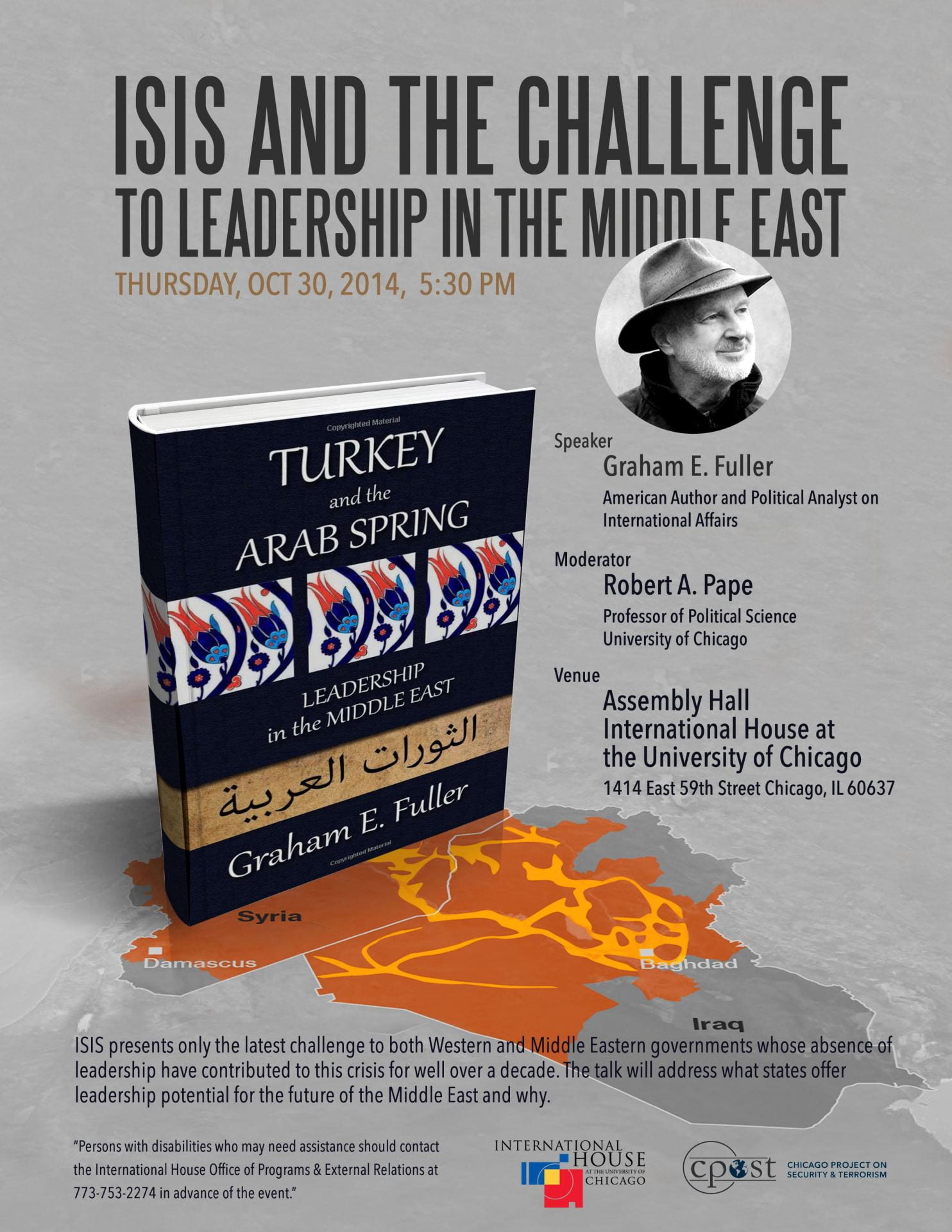Thursday, October 30, 2014
Oct. 30, 5:30PM
Assembly Hall
ISIS presents only the latest challenge to both Western and Middle Eastern governments whose absence of leadership have contributed to this crisis for well over a decade. The talk will address what states offer to leadership potential for the future of the Middle East and how.
Graham E. Fuller is currently Adjunct Professor of History at Simon Fraser University in Vancouver, BC. He has a BA and MA from Harvard in Russian and Middle East studies. He worked as a CIA operations officer for 20 years, 17 of them overseas in Turkey, Lebanon, Saudi Arabia, Yemen, Afghanistan and China. He later became Vice-Chair of the National Intelligence Council at the CIA, with overall responsibility for national-level strategic forecasting. After leaving government service, Mr. Fuller was a Senior Political Scientist at the RAND Corporation for 12 years where, among many publications, he wrote on political Islam in various countries, and on the geopolitics of the Muslim world. He speaks several Middle Eastern languages as well as Russian and Chinese. He has written many books and articles on Middle Eastern and South Asian geopolitics, including The Center of the Universe: the Geopolitics of Iran; The Geopolitics of Islam and the West; Turkey Faces East: Turkey’s New Geopolitics from the Balkans to Central Asia; The Arab Shi’a; The Future of Political Islam, 2003; The New Turkish Republic: Turkey’s Pivotal Role in the Middle East, 2008; and A World Without Islam, (Little, Brown), 2010. His latest book is Turkey and the Arab Spring: Leadership in the Middle East.
Robert A. Pape is Professor of Political Science at the University of Chicago specializing in international security affairs. His publications include “Cutting the Fuse: The Explosion of Global Suicide Terrorism and How to Stop It”, (Chicago, 2010) (with James Feldman); “Dying to Win: The Strategic Logic of Suicide Terrorism”, (Random House 2005); “Bombing to Win: Air Power and Coercion in War”, (Cornell 1996); “Why Economic Sanctions Do Not Work”, International Security (1997); “The Determinants of International Moral Action”, International Organization (1999); “The Strategic Logic of Suicide Terrorism”, American Political Science Review (2003); and “Soft Balancing against the United States”, International Security (2005). His commentary on international security policy has appeared in The New York Times, Washington Post, New Republic, Boston Globe, Los Angeles Times, and Bulletin of Atomic Scientists, as well as on Nightline, ABC News, CBS News, CNN, Fox News, and National Public Radio. Before coming to Chicago in 1999, he taught international relations at Dartmouth College for five years and air power strategy for the USAF’s School of Advanced Airpower Studies for three years. He received his Ph. D. from the University of Chicago in 1988 and graduated summa cum laude and Phi Beta Kappa from the University of Pittsburgh in 1982. His current work focuses on the causes of suicide terrorism and the politics of unipolarity. He is the director of the Chicago Project on Security and Terrorism.
Presented by the International House Global Voices Program and the Chicago Project on Security and Terrorism.
Free and open to the public.
